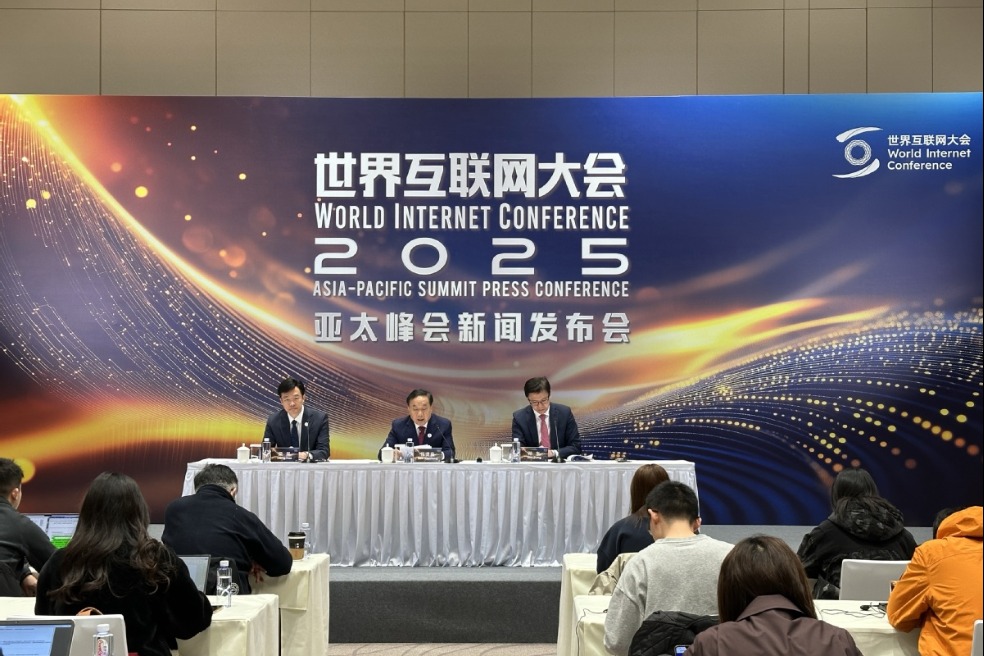Experts: China has a key role in helping bridge internet divide


China's unique experience in dealing with the digital divide is important to the world, as the country has been successful in promoting the internet in less-developed areas and can bring that insight to other countries and economies, a veteran industry expert said.
"China is unique in the sense that it has several hundred million people in the cities where they master digital technologies, in many cases, pioneering in the world. But there are also several in rural, less developed areas, more than you can think of, who are embracing the most up-to-date technologies to better their lives," said Robert Lawrence Kuhn, chairman of the Kuhn Foundation, in an interview with China Daily during the Fifth World Internet Conference on Wednesday.
"China can play a special role because when you deal with concepts like digital divide, where you have areas that have enormous penetration and enormous sophistication and other areas that do not, like the situation on a global scale and with some countries, you can learn from China's past experiences because the country was that way," Kuhn said.
Speaking of tech development in China's less developed areas, Kuhn mentioned that internet use in poverty alleviation impressed him the most.
"For instance, the concept of 'Taobao villages', where villages that had no access to any economic development other than through middlemen who sold their arts, crafts and agricultural products, can offer insights to many developing countries. Compared with the past when middlemen made big profits but people in the rural areas got very little, the development of e-commerce offers the villagers a platform where they can sell directly to the consumers and realize larger profits.
"That is absolutely terrific and a dramatic transformation for society. I think the Wuzhen summit's efforts to bring together people with similar mindsets from China and other countries are very commendable," Kuhn said.
Invited as a guest speaker at the Ministerial Forum during the internet conference on Thursday, Kuhn also shared his view on the digital divide and its relations with culture, economy and people's lifestyle.
"It (eliminating the digital divide) is not only about (improving) network infrastructure, but also cultural and educational aspects that teach people to use the internet and promote digital literacy," Kuhn said.
Echoing Kuhn's remarks, Wei Jianguo, vice-chairman of the China Center for International Economic Exchanges, said that China can lead the world in bridging the digital divide, as its internet technologies have developed rapidly over the past years, with its application of technologies ranking among global industry leaders in many areas.
As of June 2018, the total number of internet users in China reached 802 million, lifting the country's internet penetration rate to 57.7 percent, up 13.6 percentage points from five years ago, said a report from the China Internet Network Information Center. The rate is 3.3 percentage points higher than the global average, official data showed.
The digital divide could do harm to financial inclusion, therefore hindering economic development and the improvement of people's living standards, experts said.
Rural residents, low-income groups and seniors often lack adequate digital skills to understand and benefit from digital financial services, said Li Dongrong, head of the National Internet Finance Association of China.
In the era when digital financial inclusion is becoming more popular, teaching digital financial-related knowledge to those groups will bring benefits to their lives, Li said.
Eliminating the digital divide is also needed in the education sector. It helps balance educational resources as students in less-developed areas and less highly-ranked schools can have equal access to information and services through the internet, on the premise that the gap is shrinking, Tan Songhua, a consultant at the Chinese Society of Education, said earlier at a forum.
"Students from less developed areas and remote areas are more eager to learn from the internet, and communicate with the outside world through the internet," said Tan.
"The divide between people who have internet access and those who do not is deepening existing inequalities ... If we do not invest seriously in closing this gap, the last billion will not be connected until 2042. That's an entire generation left behind," said industry expert Tim Berners-Lee in an article published in The Guardian.




































